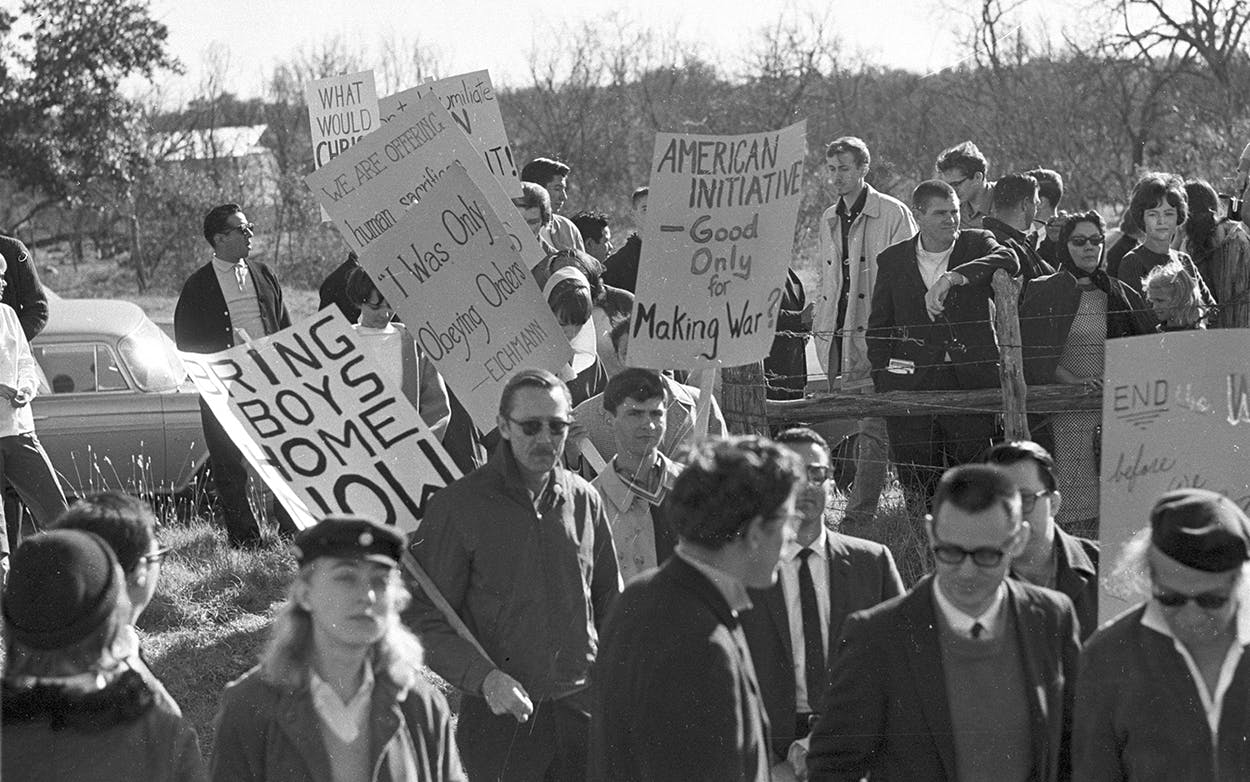A student movement is again brewing in Texas and across the nation. Its detractors charge that participants in March for Our Lives, mostly junior high and high school students, are the pawns of adults who have long crusaded for a gun grab.
This “outside agitator” charge turned absurd over the weekend when U.S. Representative Steve King (R-Iowa) lambasted Our Lives leader Emma Gonzales, a survivor of the Parkland school shooting, for wearing a Cuban flag patch on her jacket; her father is a Cuban refugee. Other detractors have called Gonzalez a “skin-head lesbian” because she identifies as bisexual.
During the Vietnam War, as today, our nation was convulsed by massive student protests. Texas veterans of that movement recognize the verbal assaults on Gonzalez and her supporters as a repeat of slanders lobbed at us. In 1965, when we staged our first street protests in Austin, hecklers on the sidewalks hollered, “Go back to Russia!” Only a handful of us had ever visited Odessa or the woodlands of Moscow—but we were talking about the Texas towns. When we rallied for free speech on the campus of UT-Austin in 1967, Frank Erwin, one-time chairman of the Texas Democratic Party and then of the UT Board of Regents, called us “dirty nothings,” a variant on the more common epithet, “pot-smoking pinko hippies.”
The outside-agitator charge has probably been raised against every insurgent movement, everywhere around the globe. Leading figures of both the Mexican Revolution of 1910 and of the Bolsheviks were accused of being in the Kaiser’s pay. Racists denounced the Southern civil rights movement as the work of New York Jews. Liberals pictured the grassroots tea-party movement as an “Astroturf” affair, funded by big-time capitalists. Perhaps grains of truth lie in all these accusations, and yes, the Our Lives movement has been funded by adults. High school students can’t pay for national protests from their wages as hamburger flippers and grocery sackers.

The relevant comparison here is that while parents support the Our Lives protesters today, most parents in the sixties despaired of activism by their offspring against the Vietnam War, especially in Texas. Often parents and protesters didn’t speak to each other for years.
On this and every scale but one, the Our Lives movement faces a more favorable future than the Vietnam antiwar movement ever did. By and large, the Vietnam protests were led by pacifistic and pot-smoking minorities until the Tet Offensive of 1968. March for Our Lives, by contrast, was born to mainstream status. Its student protests are beloved. We were reviled.
But what today’s youth protest movement shares with its predecessor is the lethargy, conservatism, and slyness of many adults. “U.S. Out of Vietnam!” was the general slogan of the student movement of the sixties. But some of its supporters, especially adults in the Northeast, at the request of North Vietnam, at one point proposed the compromise, “Stop the Bombing of Hanoi!”
We don’t know yet how the Our Lives movement will effect change. What we do know is that the forces opposed to reform will do everything in their power to delay any significant action, just as the opponents of a Vietnam exit did. It took us fully a decade to witness the satisfaction of our demand.
Veterans of the antiwar movement of the sixties and seventies part company when it comes to weighing our success. Some pridefully say that we ended that war or at least exercised great influence in bringing it to a close. Others say that even when polls showed that a majority of the population supported our cause, our efforts were largely futile. According to this argument, it was armed Vietnamese, aided by the Soviets, who won peace on the battlefields. Our movement lost; their armies won.
In this respect, the kids of the Our Lives movement are not as lucky as we were. Whether it won or lost, the movement against the Vietnam War was the beneficiary of a shifting balance of power overseas. The kids in the Our Lives movement do not have foreign allies whose interests coincide with theirs, simply because most developed nations already ban civilian ownership of military weapons. If our kids want to win today, they’ll have to show that American democracy, on its terms alone, really works.
- More About:
- Politics & Policy






